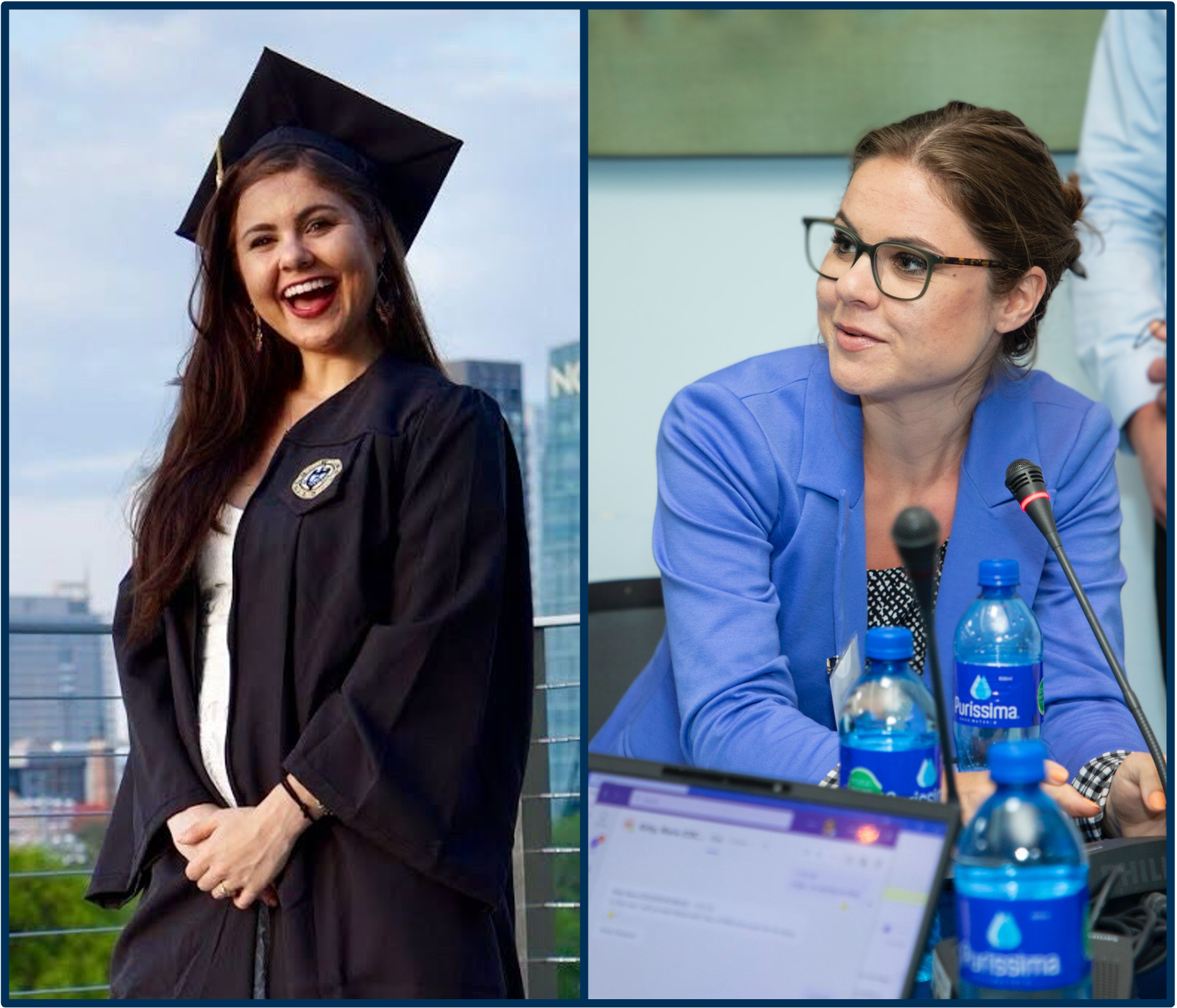Kristine Lacek vividly remembers watching news coverage of the West Africa Ebola outbreak while she was in high school. Inspired by the brave scientists investigating the disease, she wrote one of her Georgia Tech application essays about her aspiration to work at the Centers for Disease Control and Prevention (CDC) and contribute to their mission of preventing, detecting, and responding to disease threats.
Less than 10 years later, her high school dream became a hectic, fast-paced — and fulfilling — reality. Armed with an accelerated bachelor’s degree in biology and a master’s degree in bioinformatics from Georgia Tech, the double Jacket started a fellowship at the CDC during a pivotal time in history — the early days of the COVID-19 pandemic.
“It was sink or swim for sure,” says Lacek. “Knowing I was working on public health decision-making that could make a lifesaving difference worldwide showed me I had chosen the right path.”
Today, Lacek continues her drive to make a positive global impact as a bioinformatics scientist at the CDC, specializing in influenza and SARS-CoV-2 genomics. Her career has taken her around the world, with time spent in places like Ghana, Oman, Panama, Algeria, India, Thailand, and the Republic of Georgia. She currently lives in Denver, but will return to Georgia Tech to provide the graduation speech at the College of Sciences’ inaugural master’s commencement ceremony this December.
We recently sat down with Lacek to talk about her career and Georgia Tech experience:
What is your favorite memory from Georgia Tech?
Lacek: I always enjoyed the Georgia Tech nights at various Atlanta special event locations like the aquarium and Six Flags. When I was in grad school, the grad gala was held at the Fernbank Museum of Natural History. Halfway through the night, my then-boyfriend-and-now husband looked around and said we should get married here — and we did!
What were some of your college activities?
Lacek: I worked a lot to fund my way through school. I tutored at the Center for Academic Success and worked as an athletic training aid with the track and field team. I gained research experience in the Exercise Physiology Laboratory as an undergrad and in the Gibson Lab as a grad student. Each summer, I served as the teaching assistant for the Biomolecular Engineering, Science, and Technology (BEST) Study Abroad Program in Lyon, France.
How did Georgia Tech prepare you for success?
Lacek: The mix of coursework in my undergraduate and graduate studies was ideal for my career. As an undergrad biology major, I learned key theories and scientific concepts that I still use daily. Studying bioinformatics in grad school, I refined my technical skills in coding, math, and computer science. My two skill sets work well together. Because I understand the molecular side of the interdisciplinary coin, I can better apply technical tools to get the answers I need from the data.
What advice do you have for Georgia Tech students, particularly those looking for a career in bioinformatics?
Lacek: Being a fast learner is the best skill you can have, especially as technology continues to rapidly evolve. The things you are learning right now may not be the exact language or application you will use as a young professional, so the ability to learn new products, programs, and schema quickly will make you very valuable.
On the public health side of things, I think being a really good collaborator and communicator is quintessential for success. One of my biggest regrets is not learning another language. As someone who does a large amount of technical support for other countries and overseas partners, working well with others and good communication is vital.
How do you define bioinformatics?
Lacek: To me, bioinformatics is like a triangle of biology, computer science, and mathematics/statistics. I’m kind of halfway between the biology and computer science side, focusing a lot on next generation sequencing. I use code and statistical applications to make global health predictions based on the data analytics available.
Tell us more about what you do.
Lacek: I do a lot of genomic surveillance, which is basically tracking and monitoring genetic material to detect new mutations and variants. Influenza, for example, circulates year-round worldwide, and we are constantly sequencing samples from all over the place to track what the virus currently looks like and project what will happen globally. At the same time, we're also monitoring for novel outbreaks, with a posture of pandemic preparedness so that if something new and scary pops up, we are already looking for it.
How are you making a difference in the world today?
Lacek: After the COVID-19 emergency response wound down, I moved my focus to influenza. Over the last two years I have been going around the world to train other ministries of health in bioinformatics and next generation sequencing to do what we do in the United States for respiratory virus surveillance.
I believe I've trained and supported scientists from 89 different countries. Because of this effort, we’ve detected some novel variants, such as a new swine flu in Vietnam. It’s thrilling to know that we are making a worldwide impact by helping countries who don’t always have the technical resources and informatics personnel we enjoy here in the U.S.
What are your hobbies?
Lacek: I love to read; I read 106 books last year! I live in Denver, so of course, I enjoy hiking. I recently completed my first 14er (hiking a mountain peak that’s 14,000 feet above sea level). I also love to thrift, cook, and eat out!
For More Information Contact
Writer: Laura S. Smith
Communications Officer II
College of Sciences
laura.smith@cos.gatech.edu



